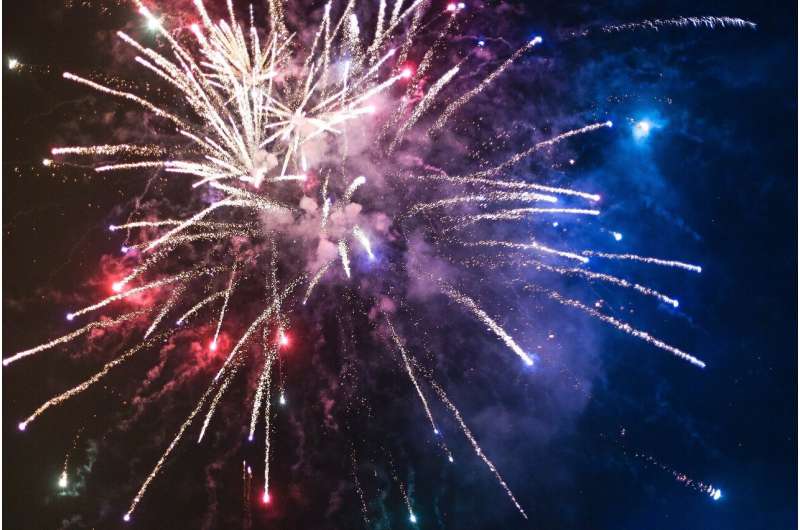This article has been reviewed according to Science X's editorial process and policies. Editors have highlighted the following attributes while ensuring the content's credibility:
fact-checked
reputable news agency
proofread
Pediatrician offers tips for fourth of July fireworks safety

On any other day of the year, would you hand your child matches or a flaming candle to play with? Probably, a hard no.
You work so hard all year long to keep your child safe. Don't let the Fourth of July mess with your common sense.
Lighting fireworks in the backyard or nearby field might seem like a festive way to entertain the kids. However, thousands of people, most of them children, teens and young adults, are injured each year while using fireworks. Most of these injuries happen in the month around the Fourth of July.
Help keep the holiday fun and safe by leaving any fireworks to trained professionals.
The Consumer Product Safety Commission (CPSC) received reports of eight deaths and about 9,700 injuries that involved fireworks in 2023. Teens between the ages of 15 and 19 had the highest rate of injuries treated in emergency departments, and children ages 5 to 9 years old had the second highest rate.
About 66% of these fireworks-related injuries took place between June 16 and July 16. Among parts of the body most often burned or wounded were hands and fingers (35%); head, face and ears (22%); and eyes (19%).
A safer way to celebrate on the Fourth is to view fireworks from a safe distance. Professional fireworks shows are going to be more spectacular, and safer, than backyard fireworks. Enjoy them at a safe distance, at least 500 feet away from the fireworks launch site. This will help avoid injuries and protect your child's hearing.
Fireworks and firecrackers can be as loud as 150 decibels—a lot louder than what's considered a safe listening level (75–80 decibels). At close distance, even one loud burst is enough to cause some permanent hearing damage.
Also keep in mind that if you find any unexploded or "dud" fireworks that fell to the ground, they may still go off. Keep your distance and call your local fire or police department right away.
If public fireworks displays are canceled in your area because of dry conditions and the risk of wildfires, consider viewing a laser or drone light show that a growing number of communities offer instead. Many cities and other areas also have dangerous air quality levels due to wildfires. Make sure to check your local regulations about safe outdoor activities and events.
Wave a flag (or glow stick) instead of a sparkler. Sparklers may seem relatively harmless, as fireworks go. But according to the CPSC, nearly half of fireworks injuries to children under age 5 are related to sparklers. Surprised? Consider this:
There were about 700 emergency department-treated injuries associated with sparklers in 2023. Roughly 800 injuries were related to firecrackers.
Remember that even if fireworks are legal to purchase and use in your community, they are not safe around children. Talk with your pediatrician if you have any questions about safely enjoying fireworks displays.
2024 Tribune Content Agency, LLC.



















